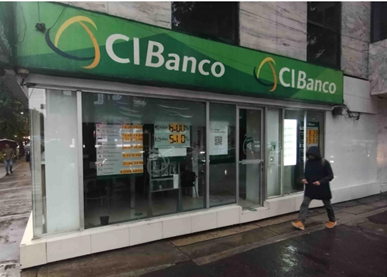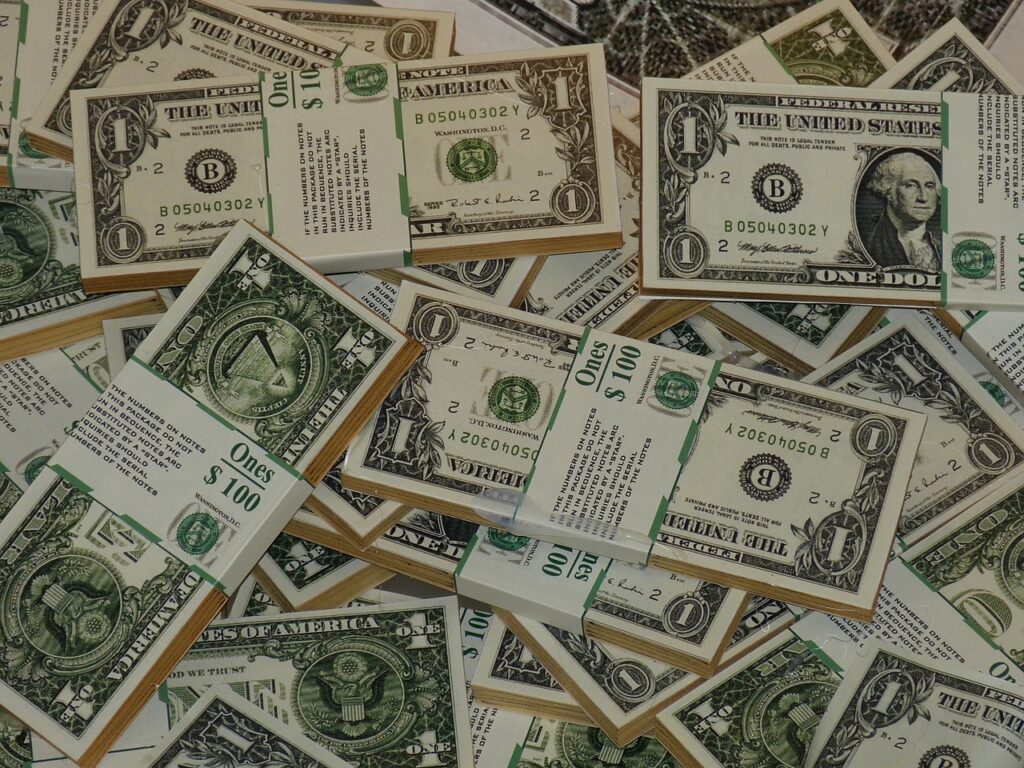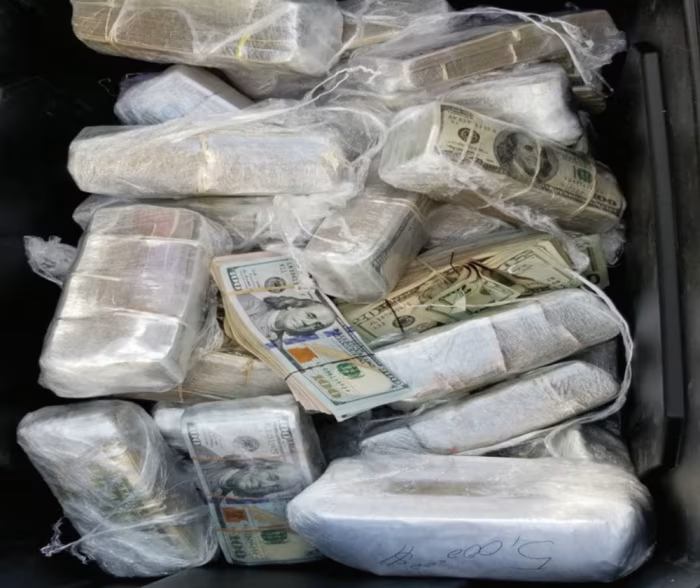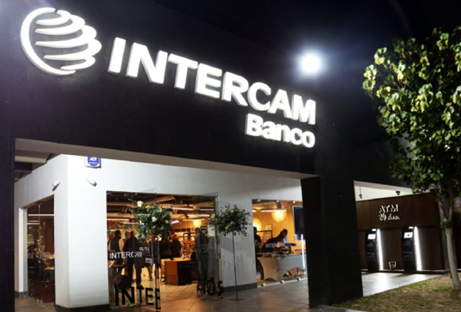In June, the U.S. announced sanctions on Mexican banks CIBanco, Intercam Banco, and Vector Casa de Bolsa that prohibited dollar-based transfers to or from those institutions to the U.S., as part of a wider effort to disrupt fentanyl trafficking, which I first wrote about here. Yesterday, the Mexican government fined these same banks for administrative violations. (more on that below)
When I first wrote about this story, there were plenty of indignant responses on social media regarding the pot calling the kettle black, i.e., plenty of dirty hands north of the border. While true, it was beside the point.
My aim with that post (and in general) is to advise expats on new risks to their daily lives here in Mexico, with tips on how to protect themselves.
What are the Latest Developments?
A few hours after U.S. government sanctions were announced, the Mexican government’s banking regulator (CNBV), stepped in to backstop operations of the three banks and reassure depositors that their money was safe.
The regulators further noted that these sanctions posed no systemic risk to Mexico’s financial system, which is well-capitalized.
But that does nothing to resolve the core problem for foreign customers of these banks. As of this week, Americans still doing business with these banks are effectively cut off from moving U.S.-based funds to their accounts with CIBanco, Intercam, and Vector, and from moving funds out of these banks to U.S. financial institutions.
A recent article in Mexico News Daily documented the extent to which expats living in Mexico have already had their financial activities disrupted by these sanctions. The sanctions have affected expats making routine transfers between the U.S. and Mexico, and others attempting to make Mexican property purchases with U.S.-based funds.
Other account holders have had problems simply attempting withdrawals from their CIBanco or Intercam accounts within Mexico following a “brief run” on these banks in the hours immediately following the U.S. announcement.

Yesterday, Mexico’s banking regulator (CNBV) hit all three financial institutions sanctioned by the US government in June with administrative fines. The $185 million pesos (USD $9.8 million) in fines were not imposed for alleged money laundering, but due to “non-compliance in administrative processes,” according to the government.
Based on reports from Reuters and other media, the fines were related to shortcomings in money laundering prevention and other obligations. Intercam was fined $92 million pesos, while CiBanco was fined $67 million pesos and Vector $26.5 million pesos.
All three financial institutions have denied wrongdoing.
Why Would the Mexican Government Impose Fines?
Since President Sheinbaum and her ministers have steadfastly defended the three banks from U.S. money laundering accusations pending more detailed evidence of wrongdoing, it’s a bit puzzling to see these fines. They aren’t for anything truly serious.
What’s telling is their timing. My hunch is that the fines are symbolic and meant to curry favor with the Trump administration at a sensitive time.
Right now, Mexico is working hard to neutralize the latest threat of punitive 30% tariffs on goods exported to the U.S., and the bank fines could be seen as a gesture of goodwill.
A few days ago, the U.S. Treasury’s Financial Crimes Enforcement Network (FinCEN) formalized its order barring money transfers to or from the sanctioned firms from U.S. accounts under the FEND Off Fentanyl Act. Mexico imposed the banking fines soon after — suggesting the two governments may have coordinated their actions.
Whatever the reason, I predict there will be more twists and turns in this drama in the coming months.

How to Protect Yourself If You Hold an Account at a Sanctioned Bank
I was stunned to read in a Mexico News Daily survey with 200+ responses that 75% of Intercam customers expect to be (or had already been) negatively impacted by the sanctions, but half planned on keeping their accounts anyway.
Your best move (if you haven’t already done so) is to open a new account at a large, established Mexican bank to ensure that you can continue to transfer funds from U.S.-based accounts to Mexico without difficulty.
Do not wait for the incident to “blow over” or expect these banks to find a quick resolution. These banks are now cut off from the U.S. financial system! (deservedly or not)
It’s not in your best interest to stick with them because you “received good service” in the past or want to “show your support” for Mexico. It’s time to be practical and smart. These institutions are now pariahs in the financial world.
And look, no one wants to deal with this headache. Changing banks is inconvenient.
But if you do all of your banking in Mexico with Intercam, CIBanco, or Vector, and rely on U.S.-based income to fund your life in Mexico, you are in for a bumpy ride.
I recommend that foreigners who live in Mexico full-time have at least two local accounts where they can receive money from abroad. As noted in my previous article, my household maintains accounts at BBVA and Nu Bank.
Having two accounts drastically lowers the risk of being cut off from your money unexpectedly. Failing that, set up a U.S. account with a provider that refunds all ATM fees, such as Fidelity or Charles Schwab, so that you can withdraw money from any Mexican ATM at minimal cost.
The bottom line is that you never know what’s coming next when living in Mexico, and it’s best to have a flexible financial plan so that you are never cut off from your foreign funds.

Who Else Has Been Accused of (or Admitted to) Money Laundering?
For transparency, let’s look at other big financial firms that’ve also been accused of (and some who admitted) money laundering on behalf of Mexican cartels in recent years.
Keep in mind that this recap is far from exhaustive.
Chinese Financial Networks & Major U.S. Banks
The Wall Street Journal reported in May on an array of U.S. banks laundering “bags of cash” at branches across Los Angeles, San Francisco, Texas, and North Carolina over a four-year period ending in 2023, totaling roughly $50 million. These funds were deposited by Chinese operatives hired by the Sinaloa drug cartel at U.S. banks, including Chase Bank (parent JP Morgan Chase), Citibank (parent Citigroup), Wells Fargo, and Bank of America.
The hypocrisy comes in when you learn that none of the U.S. banks handling the dirty money have been formally accused of wrongdoing. Only the Chinese operative named Sai Zhang, who orchestrated the deposits, was charged with crimes. He has pleaded not guilty and is set to go to trial later this year.
TD Bank in 2024
Last year, TD Bank pleaded guilty to money laundering on a grand scale and agreed to pay a fine of $3 billion USD in penalties. The bank admitted that its lax internal systems were used by Chinese money launderers to move around $470 million in cartel cash through its branches in New York, New Jersey, and Pennsylvania.
Despite their epic screwup, no senior executives were charged, though the bank’s CEO Bharat Masrani, retired in April 2025. It’s unclear which cartel(s) the bank was laundering profits for.
HSBC in 2012, 2010 & 2003
And last but certainly not least is global financial powerhouse HSBC, a British-based bank with longstanding ties to Hong Kong and significant operations in Mexico. I think they’ve been caught money laundering more than any other bank in the past 20 years.
In 2012, HSBC admitted guilt and paid a $1.9 billion fine for laundering money on behalf of the Sinaloa and Colombia’s Norte del Valle cartels. The case accused HSBC of handling more than $881 million for the two above-mentioned drug cartels, and marked the third time in nine years that HSBC had been punished by U.S. bank regulators.
At this point, HSBC’s reputation in the financial world is so sullied that bankers sometimes joke that the “C” in HSBC’s name stands for “criminal.”
So, there’s a taste of what’s happening north of the border. But you’d be naïve to assume that the banks operating in the cartels’ backyard have clean hands.
What Exactly is Money Laundering?
Money laundering is an illegal activity in which participants convert “dirty money” earned from criminal enterprises to “clean” money via legitimate business activities. The point is to conceal the original source of the funds, and frequently involves passing cash through a series of bank and/or crypto transactions that make it difficult to track.
Sources: Reuters, Investopia, The Wall Street Journal, El Economista, and others

